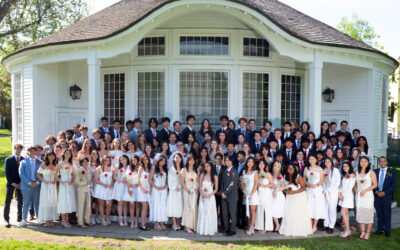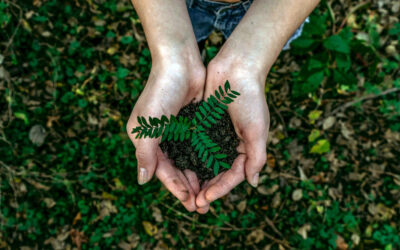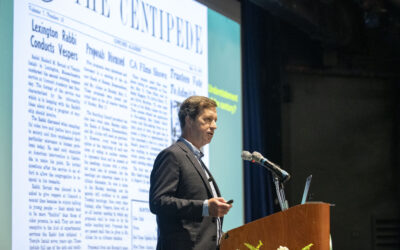Following is the text of CA English teacher Sabrina Sadique’s chapel talk, delivered September 24, 2019.
Dedicated to the memory of David Marlowe Grayzel
(September 15, 1999 – October 9, 2017)
Jaunpuri (Rendition of a Raga) (2015), piano – Sophia Subayya Vastek
Composition Michael Harrison, tabla – Nitin Mitta
On July 7, 2000, a year before 9/11, I arrived at JFK International Airport from Bangladesh to begin my freshman year of college. Often I am asked how long it has been since I have been home. The answer is 19 years. I haven’t returned since I arrived. On October 2, 2013, I received a certificate that states that I have been admitted as a citizen of the United States of America “having complied in all respects with all of the applicable provisions of the naturalization laws of the United States, […] having taken the oath of allegiance at a ceremony conducted by U.S. District Court in the District of Massachusetts.” I had tears in my eyes when the oath entailed declaring that I absolutely and entirely renounce all allegiance and fidelity to any foreign state of which I had been a subject or citizen and that I will bear arms on behalf of the United States when required by the law.
Bearing arms contradicts my inner constitution, and there I was at Faneuil Hall in Boston vowing exactly that as I legally uprooted myself from the very soil of Bangladesh where my consciousness originated. No language can convey in this chapel the fracture within my soul at that point. I stand here today to aver that I stand by my choices even if their cost means to embody a divided world.
Today, I want to narratively draw two bisecting circles, one that explains how I got here, and the other that elucidates where my beliefs stand now. My truth oscillates somewhere in between, at the frontiers and thresholds.
The eighth-most populous country now with 163 million people, Bangladesh was once a part of India, and later Pakistan. It became independent in 1971. Bangladesh proudly features the longest natural sea beach, the largest mangrove forest in the world, and a line of female prime ministers, from 1991 to the present. When it comes to breaking glass ceilings, Bangladesh — the world’s fourth largest Muslim-majority country—is ahead of America. It is also the largest delta in the world, a low lying coastal nation often referred to as “ground zero for climate change.” In 1998, two years before I came to America, we experienced the most severe flooding in modern world history that left over 30 million people homeless. During the flood of 1988, which inundated about 82,000 square kilometers of the land, my brother was born.
In A History of Western Philosophy published in 1945, philosopher Bertrand Russell wrote that “to teach how to live without certainty, and yet without being paralyzed by hesitation, is perhaps the chief thing that philosophy, in our age, can still do for those who study it.” Each day, I try not to be paralyzed by the uncertainty that besets the spirit of the people who constitute my roots and not to hesitate in my decision to remain in this country, which has also become mine.
In the spring of 2000 when I was admitted to colleges in the United States, my father was furious. Up until that point he hadn’t quite believed I would or could follow through with my decision to leave home. Moments of my childhood that are most magnified in my memory are those when he asserted that a girl has no place in education. In fact, in sixth and eighth grade, he stopped me from attending school. My mother intervened on both occasions and permitted me to resume my studies at the cost of bearing my father’s censure. My investigative interest in theology, not just Islam, but all religions, derive from the fact that my father often misadduced the Qur’an as the Source of his personal misogyny. You see, my ontological safety was at stake, which is why I always needed and need to know what’s actually in the text, and what I have often discovered is how cultural readings of revelations deviate from the content of source texts. And how misreadings in turn become culture.
My departure from Dhaka, the capital of Bangladesh where I was born, was the culmination of many smaller inflection points where I had struggled to contest my father’s values in order to assert my own love of learning and find my place in the world. Freedom requires the agony of splitting. As my own incipient freedom began to emerge 19 years ago, my relational links to my father, and thereby my family, began to decline. Today, those links are nearly extinct.
It was in fourth grade that I knew that the only way to stand up to my father and avail the education I so desperately sought would be through education itself. I got hold of English books well beyond my capacity of comprehension and began to translate desperately with two dictionaries (English to Bengali, and Bengali to English). I felt my life depended on it. It took me years to register the complexities of Wuthering Heights and Jane Eyre, which became my foundational texts. Jane Eyre in the Red Room, Jane Eyre standing up to Brocklehurst, Jane Eyre receiving the early intimations of what God means through the transcendental spirit of Helen Burns, Jane Eyre mirrored in Jamaican Bertha Mason, misdeemed mad and locked in the attic, Jane Eyre in the moors—wild, primal, and as fiercely free as Catherine Earnshaw in Wuthering Heights. I participated in their invented destinies with the resolve to construct my own. All these textual moments are my lighthouses, my guiding metaphors. They are every woman’s primal scream at some point of our lives. Books make imagination of freedom possible when a body is bound by context. Imagination of freedom precedes articulation of freedom. And to muster the language of freedom precedes the state of freedom itself. You have to dare to think it first before you can speak it. And you have to speak it first before you can enact it.
What it means to be hyperlocated and hypervisible as a Muslim female citizen of post-9/11 America is not too far from what it meant to call myself Muslim in own family, to stake my own interpretation of the Qur’an there. Ayah 256 of sūrah Al-Baqara is a verse in the Qur’an that clearly states: “There is no compulsion in religion.” That one line soothes the confounded parts of my soul as much as the Psalms do, as much as Tibetan Buddhist teacher Longchenpa does when he exhorts, “Labeling takes place in confusion, for what is nonexistent is taken to exist.” (1) I am an alien in each of these spiritual orbits, including the one I was born into, and I wish to delve as deeply as I can into the substance of alienation, endure its extremities, and glean from that grief my own understanding of the self. Sustaining my coherence within the contradictory forces of family and faith, faith and faith, past and present, isn’t easy, but it is also the gift of being human.
I urge you not to extrapolate my domestic particularity into a cultural norm. My family is only one data point in the variegated richness of Bangladesh. I earned my freedom to knowledge by breaking ties with those who birthed my existence, but that is my hard bargain that I am accountable for, my situated specificity. I pray to raise a daughter who can easily assert her intrinsic right to knowledge and freedom. And that is my situated aspiration. It is also my aspiration to continue to refute and refuse any implicit or explicit cultural determination of womanhood as a category that cannot survive on her own, whose existence is secondary, whose subject position is made object, and whose survival is postlapsarian, as fallen as a curious Eve, and conditioned upon failures of good judgment. I grew up being told that I need a companion to carry through the world and that the purpose of my being was to serve the notion of a nuclear family as its mother. When I look at my own notion of motherhood firmly in the eye, I behold a transhistoric chain of mothers—teachers, peers, mentors, students, friends, colleagues—who have birthed not my body but keep recursively birthing my imagination, and who would I be without these primordial trees?
Here is where my beliefs and thoughts stand now.
I think cultivation of empathy begins with heeding everything that does not look human, that seems remote from us, as a fundamental extension of ourselves and our humanity. When you walk into your classroom today and place your hands on your desk, I want you to marvel at the desk’s existence. Where did it come from? Which tree? Which soil? How much fuel to transport it? How many human forces colluded to form its place in the world as you lean over it? Who are their families in this cruel and magnificent world? Your desk on which you write is united to a tree somewhere and is the floor of the hermitage that is your mind. Treat trees with inviolable love. Trees with deep roots that balance temperature and are the ablest receivers of floodwater. And now extend that love by the same principles to everything, living and non-living, that graces your presence today. Atone in dappled descriptions, confess to the blooming detail. The willow by this chapel is a shade we can still afford and know calm. That word calm that calms us and the soft sensations beneath it is one of the lowest currencies in the world right now. When I say atone, I mean, be at one with yourself because that’s where the word “atone” comes from. And if you are not at one with yourself, ask how better to correspond your internal values with your external actions to harmonize that tilt, because misalignment, as I have come to know, is the origin of suffering. It’s hard work to assert such proportionality between the outer and the inner. I fail at it many times a day and I reboot just as often.
It was in the fall of 2000 in Professor Jeffrey Kenney’s astrophysics class that I first studied black holes as a freshman. Black holes are those formidable, infinitesimal spaces where gravity pulls so hard that even light can’t escape. It is there that I first began to realize how little I know and how there might be an event horizon to what we can know. And that all that exists can be compressed to a single, dense shiver. And yet there are so many judgments we mete out against things that seem invisible or weak, ideas and people that we know so little about. Spanning 106 acres of the Fishlake National Forest in Utah stand 47,000 aspen trees that are genetically uniform and act as a single organism. This largest form of known sentience in the world grew from a single root system. I urge us never to underestimate the powers of zeroes and ones, despair and solitude. Presence continues to unfurl in seeming absence: the most revolutionary texts that united a million minds emerged from singular imaginations in lonely prison cells.
To be human is to ceaselessly contend with equal forces of skepticism and faith in what we know and ask which has enough proof to win over the other. This chapel arose from students, here and not here, who have asked me “Are you Buddhist?”, “Do you believe in God?”, “What do you believe?”.
Here is my answer.
To be beyond effect, beyond reaction and response, but relentlessly vibrant in darkness despite darkness, is my notion of God. That is also my notion of that copper beech tree by South School whose tenacity and grace through the seasons remind me of hieroglyphs of ancient moss forged from stars that died even as we saw them alive. They remind me of the churning, seeking threads of life that exist and circle back with all their membranous fragility and furious strength despite our capacity for self-erasure. Love and God are perhaps the soil, sentience, and sap of that quiet, resilient, unclaimable tree.
May we be elastic in our critical thinking.
May we never be complicit in our own degradation.
May there be room in us to hold mysteries.
May we tend to the joy of others: Our own joy rises from that gift.
There is no other accomplishment — none — that can compete with loving all things visible and invisible the way we would like to be loved.
My name is Sabrina Afroze Sadique and that was my chapel.


